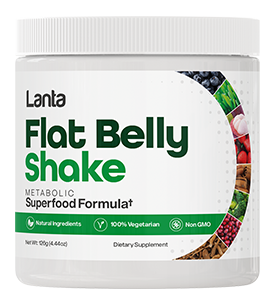Content Summary
Obesity has become a significant health concern worldwide, affecting millions of individuals of all ages. Here we will explore what obesity is, get into its causes, discuss strategies to avoid becoming obese, examine the impact of diet on obesity, and address common questions surrounding obesity as a disease and its inheritance from parents.
What is Obesity?
Obesity is a medical condition characterized by an excessive accumulation of body fat, to the extent that it can have detrimental effects on a person's health. It is typically measured using the body mass index (BMI), which calculates weight in relation to height. A BMI of 30 or higher is considered obese.




Causes of Obesity:
Multiple factors contribute to the development of obesity. Here are some common causes:
Poor Diet: Consuming high-calorie, nutrient-poor foods, such as fast food, sugary beverages, and processed snacks, can contribute to weight gain and obesity.
Sedentary Lifestyle: Lack of physical activity and prolonged periods of sitting or inactivity can lead to weight gain and obesity.
Genetics: While not the sole determinant, genetics can influence an individual's susceptibility to obesity. Certain genes can affect metabolism, fat storage, and appetite control.
Environmental Factors: Factors such as the availability of unhealthy food options, food marketing, socioeconomic status, and cultural influences can contribute to obesity.
Is Obesity a Disease?
Obesity is considered a complex medical condition involving multiple factors, including genetic, metabolic, environmental, and behavioral components. In 2013, the American Medical Association classified obesity as a disease due to its adverse effects on health and the need for medical intervention.
How to Prevent Obesity
Preventing obesity involves adopting healthy lifestyle habits. Here are some strategies to avoid becoming obese:
Balanced Diet: Consume a balanced diet rich in whole foods, including fruits, vegetables, whole grains, lean proteins, and healthy fats. Focus on portion control and limit the consumption of high-calorie, processed foods.
Regular Physical Activity: Engage in regular exercise or physical activity. Aim for at least 150 minutes of moderate-intensity aerobic activity per week, along with strength training exercises.
Mindful Eating: Practice mindful eating by paying attention to hunger and fullness cues, eating slowly, and savoring the flavors of food. This can help prevent overeating.
Hydration: Stay adequately hydrated by drinking water throughout the day. Avoid sugary beverages that add unnecessary calories.
Adequate Sleep: Aim for 7-9 hours of quality sleep per night. Inadequate sleep can disrupt hormones related to appetite control and lead to weight gain.
Food Choices and Avoiding Unhealthy Foods:
When it comes to food choices, it's essential to be mindful of what you eat. Here are some foods to avoid and better choices to make:
Foods to Avoid:
Sugary beverages: Regular consumption of sugary drinks like soda and sweetened juices can contribute to weight gain. Opt for water, unsweetened tea, or infused water instead.
Processed Snacks: Highly processed snacks like chips, cookies, and candies are typically high in calories, unhealthy fats, and added sugars. Choose healthier alternatives like fresh fruits, nuts, or homemade snacks.
Fast Food: Fast food often contains high amounts of unhealthy fats, sodium, and added sugars. Try to limit fast food consumption and opt for homemade meals with fresh ingredients.




Better Food Choices
Fruits and Vegetables: Incorporate a variety of colorful fruits and vegetables into your diet. They are nutrient-dense, low in calories, and packed with fiber, vitamins, and minerals.
Whole Grains: Choose whole grains like quinoa, brown rice, and whole wheat bread instead of refined grains. Whole grains provide more fiber and nutrients.
Lean Proteins: Opt for lean protein sources such as skinless poultry, fish, legumes, tofu, or Greek yogurt. They are lower in saturated fat and provide essential amino acids.
Inheritance of Obesity from Parents
While genetics can influence an individual's predisposition to obesity, it does not guarantee its development. Genetic factors may affect metabolism, fat storage, and appetite regulation, but lifestyle choices still play a crucial role in preventing obesity.
A healthy diet, regular exercise, and lifestyle modifications can significantly impact weight management, even for individuals with a genetic predisposition.
Author's Choice of Slimming Body Solution
Lanta Flat Belly Shake



What is Lanta Flat Belly Shake? It’s a powerful “morning shake” powdered drink supplement that wakes up the metabolism and burns fat all day long.
A recent discovery from Harvard Medical School has uncovered a strange hormone inside your body that when activated, kills food cravings, supports healthy blood sugar levels, and burns even the deepest stored fat off your body.
It’s so powerful — in one shocking study people increased their fat-burning capacity by up to 481%. Luckily, there’s an easy way to activate this powerful fat-burning hormone in your body for as little as 10 seconds a day…And it just takes 1 cup of this ancient purple tonic every morning.
Best of all, it’s doctor-recommended… and anybody can make it with just a few common kitchen ingredients. And this works no matter how old you are or how many extra pounds you have to lose. Now, thousands of men and women are losing up to 7.8 lbs in a week… simply by drinking this delicious purple tonic every morning.
Why You Should Consider Protein Shakes Smoothies
A protein shake provides low-calorie, clean protein that will enhance your burning furnace. Whey protein contains the hormone CCK, which makes you feel full and satisfied, thereby reducing food cravings. Fermented soy powder was recently studied at Beth Israel Medical Center in Boston for its effects in promoting weight loss in obese animals.
Animals fed fermented soy powder lost as much as 64 percent of their body fat. As well, they did not eat as much food as the animals who didn't get fermented soy powders, providing evidence that food cravings were reduced. Protein shakes are refreshing, provide quick energy, and are a wonderful alternative to caffeine-laden beverages.

Orgain Organic Vegan Protein Powder



- 21 grams of organic plant based protein (pea, brown rice, chia seeds), 2 grams of organic dietary fiber, low net carbs, 0 grams of added sugar, 150 calories per serving
- USDA organic, vegan, gluten free, dairy free, lactose free, low net carbs, no added sugar, soy free, kosher, non GMO, carrageenan free, and no artificial ingredients
- Mix with water, milk, or your favorite protein shake recipe for a quick breakfast or snack drink. Use when baking to give your cakes, muffins, brownies, or cookies a protein and energy boost
- Ideal for healthy, on the go nutrition for men, women, and kids. These are great for meal replacement, smoothie boosters, muscle recovery, and pre or post workouts
Most FAQs about Obesity:
What is the Definition of Obesity?
Obesity is a medical condition characterized by an excessive accumulation of body fat to the extent that it can have detrimental effects on a person's health.
It is typically determined using the body mass index (BMI), which is calculated by dividing a person's weight in kilograms by the square of their height in meters. A BMI of 30 or higher is considered indicative of obesity.
However, it is important to note that BMI is a general measurement and does not take into account factors such as muscle mass or distribution of fat within the body.
Obesity is associated with an increased risk of various health problems, including cardiovascular disease, type 2 diabetes, certain types of cancer, and musculoskeletal disorders, among others.
What is the Number 1 Cause of Obesity?
The number one cause of obesity is an energy imbalance between calorie intake and expenditure. When individuals consume more calories than they burn through physical activity and daily metabolic processes, the excess calories are stored as fat in the body, leading to weight gain and, over time, obesity.
In other words, consistently consuming more calories than the body needs for energy can result in an accumulation of body fat and subsequent weight gain. However, it's important to note that obesity is a complex condition influenced by various factors, including genetics, lifestyle choices, environmental factors, socioeconomic status, and psychological factors.
While energy imbalance is a primary factor, addressing obesity comprehensively requires a multifaceted approach that encompasses diet, physical activity, behavior modification, and support systems.
How Metabolism Affect Obesity?
Metabolism refers to the processes in the body that convert food into energy. It involves various chemical reactions that break down nutrients and determine how efficiently the body utilizes and stores energy.
Individuals with a slower metabolism may have a higher tendency to gain weight and be at a greater risk of obesity. This is because a slower metabolic rate means the body burns fewer calories at rest and during physical activity.
Consequently, if calorie intake remains high while energy expenditure is low, excess calories are more likely to be stored as fat, leading to weight gain and potentially obesity.
However, it's important to note that metabolism is influenced by multiple factors, including genetics, age, body composition, hormone levels, and physical activity.
While some individuals may have a naturally slower metabolism, it does not necessarily mean they are destined to be obese. Lifestyle choices, such as maintaining a balanced diet, engaging in regular physical activity, and building muscle through strength training, can help support a healthy metabolism and prevent or manage obesity.
Furthermore, it is crucial to understand that obesity is a complex condition influenced by various factors beyond metabolism alone. Addressing obesity comprehensively requires a holistic approach that considers multiple factors, including diet, physical activity, behavior, and overall lifestyle.
What are the Factors that Contribute to Obesity?
Multiple factors contribute to the risk of obesity, and certain populations are more vulnerable than others. Here are some groups that are generally considered to be at higher risk of obesity:
Individuals with Sedentary Lifestyles: Lack of physical activity is a significant risk factor for obesity. People who lead sedentary lives, with minimal exercise or physical activity, are more prone to weight gain and obesity.
Unhealthy Dietary Patterns: Those who regularly consume a diet high in calories, unhealthy fats, added sugars, and processed foods are at a higher risk of obesity. Diets lacking in fruits, vegetables, whole grains, and lean proteins can contribute to weight gain.
Genetic Predisposition: Genetics can play a role in obesity. Some individuals may have genetic factors that affect metabolism, fat storage, and appetite regulation, increasing their susceptibility to obesity.
Socioeconomic Factors: Lower socioeconomic status is associated with a higher risk of obesity. Limited access to affordable, healthy food options, living in neighborhoods with few opportunities for physical activity, and other socioeconomic factors can contribute to higher obesity rates.
Age: The risk of obesity tends to increase with age. Metabolic rate tends to decrease as we get older, and lifestyle factors, such as decreased physical activity and changes in dietary habits, can contribute to weight gain.
Psychological Factors: Emotional factors, stress, depression, and certain eating disorders can contribute to obesity. Emotional eating or using food as a coping mechanism can lead to overeating and weight gain.
Certain Medical Conditions and Medications: Some medical conditions, such as hypothyroidism, polycystic ovary syndrome (PCOS), and certain medications (e.g., antidepressants, and corticosteroids) can contribute to weight gain and obesity.
How Many People are Obese in the USA?
As of my knowledge cutoff in September 2021, obesity rates in the United States have been steadily increasing over the past few decades.
According to data from the Centers for Disease Control and Prevention (CDC) from 2017-2018, approximately 42.4% of adults in the United States were considered obese. This means that almost half of the adult population in the U.S. had a body mass index (BMI) of 30 or higher.
It's important to note that these statistics are subject to change over time as new data becomes available. For the most up-to-date information on obesity rates in the United States, it is advisable to refer to recent reports and studies from reputable sources such as the CDC or other relevant health organizations.
Conclusion
Obesity is a prevalent health issue with various causes, including poor diet, sedentary lifestyle, genetics, and environmental factors. Preventing obesity involves adopting a balanced diet, engaging in regular physical activity, practicing mindful eating, staying hydrated, and prioritizing adequate sleep.
By making healthier food choices, avoiding sugary beverages and processed snacks, and incorporating fruits, vegetables, whole grains, and lean proteins, individuals can reduce the risk of obesity and promote overall well-being.
Remember, obesity is a complex condition, and while genetics may play a role, lifestyle choices and environmental factors remain key in its prevention and management.
Stay Fit and Healthy!
Relevant Reads>>>














